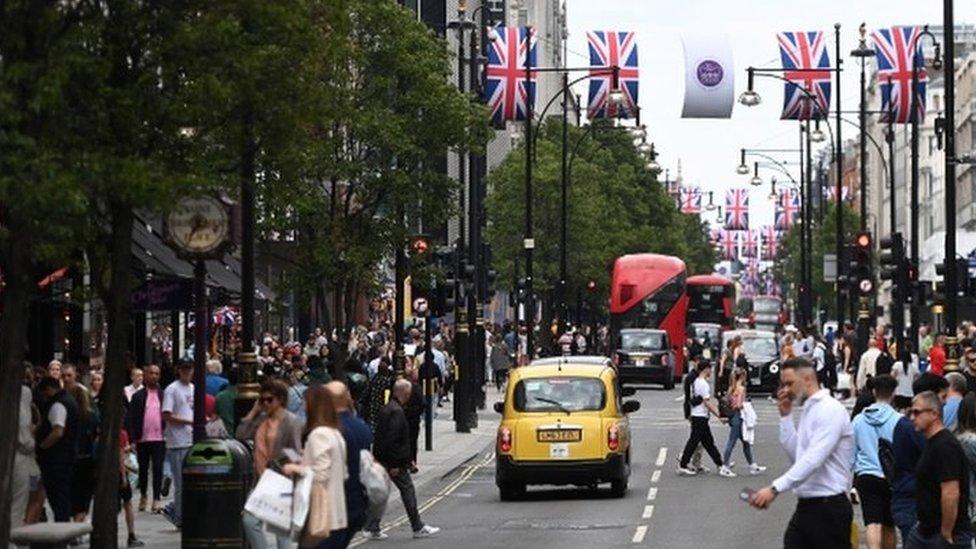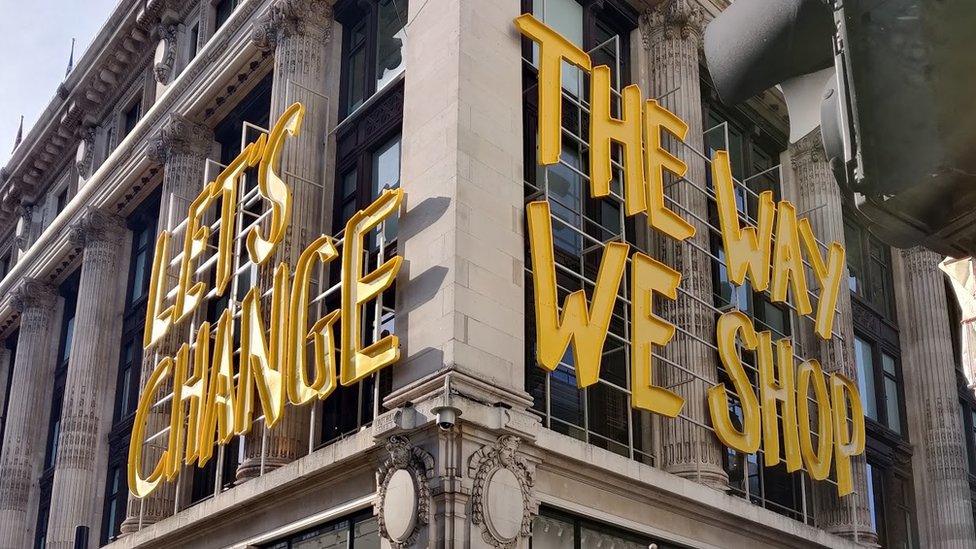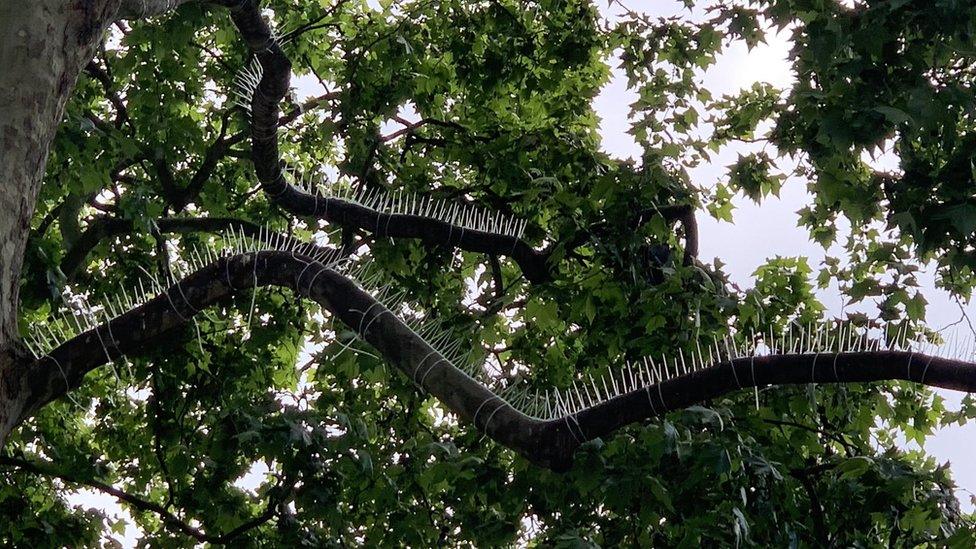Oxford Street: Tax investigation into US-themed sweet shops
- Published

Many of the stores double as souvenir shops, selling a range of items
Thirty US-themed sweet shops on London's Oxford Street are being investigated for allegedly failing to pay £7.9m in business rates.
Westminster City Council said it had seized about £474,000 of counterfeit and illegal goods from American candy and souvenir stores in the past six months, including unsafe vapes.
Councillor Adam Hug said they were "a threat to the status" of Oxford Street.
The council said they were "far from regular and legitimate businesses".
A spokesperson added "very few" of the shops were "serving sufficient customers to be commercially viable".
"Instead, we believe that these properties are used to avoid business rate bills and possibly commit other offences."
Westminster City Council trading standards said complaints included out of date food, counterfeit "Wonka" bars and sex novelty sweets.
Officials also discovered nearly 4,500 disposable vapes, allegedly containing excessive levels of nicotine or not conforming to UK standards.

Adam Hug is the new leader of Westminster City Council
Mr Hug, leader of Westminster City Council, said the US-themed sweet shops were on the rise.
"They are not only an eyesore; they are a threat to the status and value of what is supposed to be the nation's premier shopping street," he said.
"The problem is that owners of buildings are turning a blind eye to those who sublet them as it means they are not liable for business rates.
"This needs to stop and we will be stepping up pressure on landlords to make it clear they are responsible for Oxford Street being overrun with these kinds of stores.
"The people selling overpriced and often out-of-date sweets are cheating the UK taxpayer and very often swindling their customers into the bargain."
Westminster City Council said it had recently written to 28 freeholders "urging them to consider the impact of US sweet shops on Oxford Street".
Its officers are currently taking action to enforce against properties under various civil proceedings, including planning enforcement action where the premises are advertising illegally.
How does it allegedly work?
The issue relates to empty shops, where the freeholder or long leaseholder would normally have to pay business rates on an empty store but can pass on these rates to an occupier.
The freeholder or long leaseholder allegedly lets to an intermediary company or person, who in turn lets to the candy stores, usually on licences.
The candy stores allegedly occupy the premises on a minimal rent and employ staff on minimal wages.
And as tenants occupying on licences it can be difficult to establish the identity of the business owners who should be paying the business rates.


Follow BBC London on Facebook, external, Twitter , externaland Instagram, external. Send your story ideas to hellobbclondon@bbc.co.uk, external
Related topics
- Published12 April 2021

- Published6 June 2022
